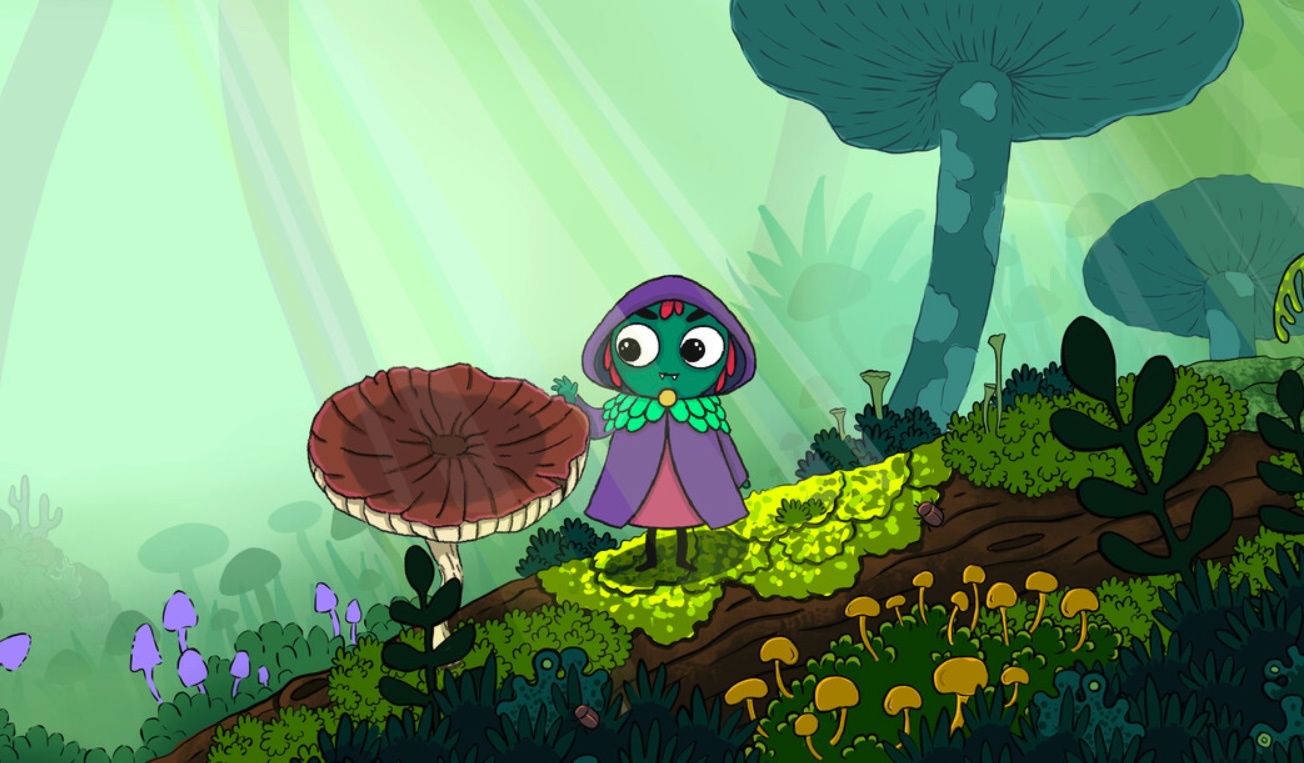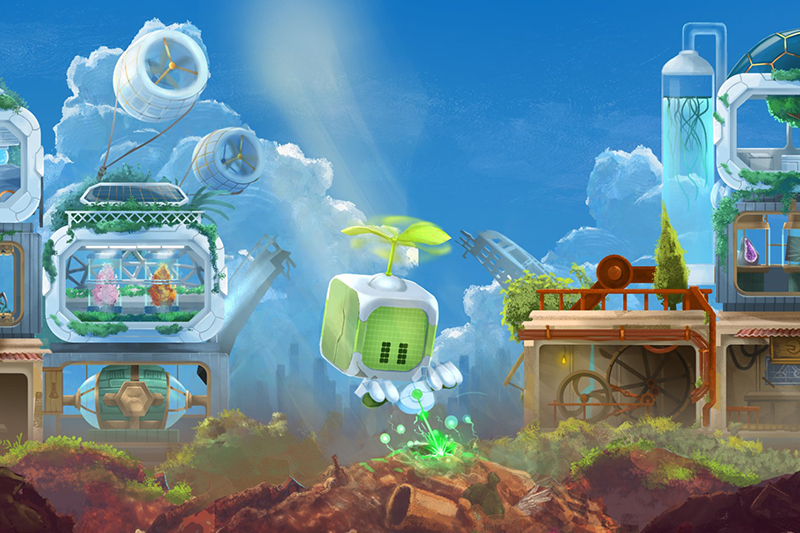There is a better future for the Australian games industry, beyond recent layoffs, studio downsizings, publisher absence, and closures. But it’s one that must be actively supported, with organisations like Screen Australia putting in the work to elevate creative projects, and ensure diverse stories are told.
Speaking to ScreenHub, the organisation’s new Head of Games, Joey Egger, spoke enthusiastically about that future, and how Screen Australia’s latest round of games funding highlights the company’s long-term goals to foster new talent and lay the brickwork for a stronger, more stable Australian games industry. Egger has taken the reins from former Head of Online and Games Lee Naimo, with the role expanded to focus solely on games.
‘Our focus is actually in the long term, because what we’re trying to do is help bring up this emerging talent through these funding programs, and hopefully get them into a position where in 5 years time or 10 years time, they’ll be the industry leaders, and the industry talent that everyone’s talking about,’ Egger said.
‘It’s not about short-term success. It’s more about [that] we could be positively impacting a person’s career or outcomes over the next 20 years, because of this funding. That person could go ahead to run a company of 200 people, and end up in 20 years employing [a lot of] people because of the funding we gave them.’
How Screen Australia works with other state-based arts organisations

Screen Australia is not alone in this goal. It also works alongside other state-based arts organisations like VicScreen and Screen NSW, with the shared goal of providing new opportunities and avenues for game makers. And not only to create their own games and tell their stories, but to upskill through networking and learning. In addition to funds for early and mid-stage video game projects, Screen Australia also provides support for developers to travel to various game developer events in Australia and overseas.
Egger considers an important part of her role at Screen Australia being to ‘advocate for the Australian games industry, and its importance as part of the National Cultural Policy.’ This document, released in January 2023, is a statement of intent to revive Australia’s arts, entertainment, and cultural sector with targeted initiatives designed to help Australia’s creative sectors grow and flourish.
In the months and years ahead, Egger will focus on this ideal of growth, wielding her own experiences in the mobile, web game, and screen sectors to push local developers into the ‘next phase of their journey in game making.’
Egger has also acknowledged that Screen Australia’s funding has become a life raft of sorts for some developers, as overall economic downturn has changed the landscape of the games industry in Australia and overseas. With the situation in flux and ever-changing, providing individuals and small teams with the means to realise their most creative ideas becomes essential.
Read: Screen Australia announces funding for 26 new Aussie-made games
‘It’s been a bit of a turbulent time in the industry,’ Egger said. ‘There have been layoffs. We’re actually seeing applications coming through from people who had been working in studios. The industry is wobbly, but … one of the [more positive] takes on it is that’s bringing game makers together, and you’re starting to see these collaborations form. That’s kind of exciting, because there’s amazing talent that is now coming out to create their own games, their own form of Australian storytelling through games. I’m really excited to see where they go.’
Why video games are a core focus for Screen Australia
As Egger makes clear, it’s not an ideal situation – but in a time where storytelling through video games is more important than ever, organisations like Screen Australia can play a part in guiding those tales to shore. Given the hardships facing the world right now, these tales are also more important than ever.
‘Video games are really important because they connect with people in ways that [other media] doesn’t,’ Egger said. ‘They’re amazing in themselves. They’re nothing quite like diving so deeply into a game, and a really wonderful story, that you can get so immersed, it’s almost like you’re part of the game itself … Games can tell stories, and they can teach lessons in really special ways. Games can be fun. They can be puzzle-based. They can be for health. They can be for education.’
‘At the end of the day, they’re this immersive way for people to be able to really learn and grow, in a way that makes sense to them.’
The breadth of what video games can be is seen clearly in the latest round of games funding by Screen Australia. Stories funded hail from all over the country, with each charting distinct themes.
There’s Retopia, a game following robot companions who must rebuild the world after an apocalypse. There’s Ashes, a game about a young skater who must deal with the aftermath of witnessing a murder. You’ve also got Penguin Colony, which invites players to explore Antarctica and unravel ‘difficult truths.’ There’s also Buru and The Old People, a narrative-driven game inspired by Indigenous perspectives and storytelling.

Notably, this latest crop of games features projects from teams in inner cities, as well as several regional townships.
‘What struck me about these projects is the depth of talent and the distinctiveness of the content; the diversity of our culture, communities, landscapes and stories really shines through. We’re seeing games being developed all across the country including regional towns such as Wallabadah in NSW and Toongabbie in Victoria,’ Egger said.
A diversity of lived experiences naturally leads to more diverse games.
‘We’re really keen to ensure that were are selecting game makers from across Australia, not just from city hubs but from regional areas,’ Egger explained. ‘It’s actually a very long process. It’s all very data-driven … and it’s a very, very, very hard thing at the end of the day, when the final decisions need to be made.’
‘I would say it’s emotionally taxing, because there are so many amazing games and game ideas, and talent out there. What we’re seeing is an unprecedented level of applications.’
Egger also spoke to the idea of ‘maximising’ the impact of Screen Australia’s funds, ensuring the money provided does the best job it can, to elevate emerging game projects and their creators. But she also made clear this ‘maximising’ has nothing to do with commercial potential or other more money-driven measures. While Egger confirmed a desire for games to appeal to a wide audience, value is understood more in cultural capital, and the emotional impact a game might have.
‘You’re definitely look at which games have that quality, and which games are going to be appealing, but I wouldn’t say it’s about who’s going to earn the most money, or who’s going to get the most downloads,’ Egger said. ‘For us, it’s about aligning with the National Cultural Policy, for example, “where are these really unique Australian stories being told?”‘
‘We select from a wide variety of game stories and game types … You do see games come through where you’re like “that will probably sell well” but that’s not what we’re about. We’re about supporting game makers in Australia, and growing that industry, growing that talent, getting that talent exposed internationally.’
In the years ahead, Screen Australia plans to maintain its commitment to these goals, with more funding on the way to elevating the Australian games industry. The current round of applications for games funding are now open, and anyone in a position to benefit from this funding is encouraged to apply.
‘We read every application very carefully, and we just love to hear new ideas,’ Egger said.





